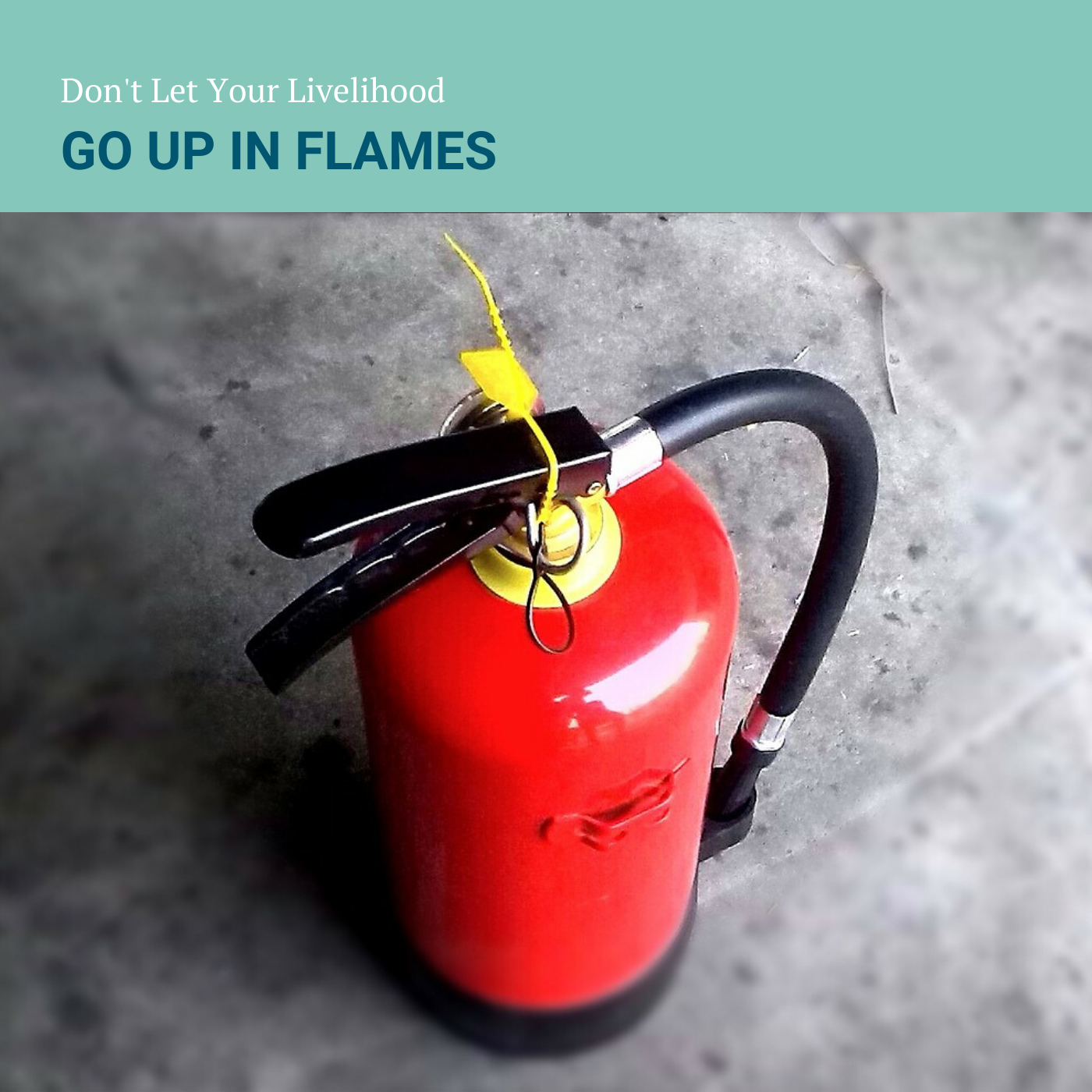Don’t Let Your Livelihood Go Up in Flames

By Amy Ayers, BS, RDH
I’ve always been a cautious individual. I never wanted scars or great stories of how I narrowly escaped harm. I like my teeth, limbs, and eyebrows just the way they came, and the emergency room doesn’t seem thrilling. However, I realize there are some daredevils out there. I knew a couple of girls in high school who lit their batons on fire and performed for hundreds at football games. I didn’t envy their fame a bit, and I always wondered if they got burned. Whether you enjoy the adrenaline rush or not, I bet no one at your place of employment wants to be out of work due to a fire. So, if a fire began in your vicinity, what would you do?
First of all, you need to prepare for the situation BEFORE it occurs. This involves the development of Fire Emergency policy and protocol. If there are 10 or more employees, there must be written documentation of the Fire Plan. MPS regularly prepares these documents for clients as a part of their OSHA compliance package. If there are fewer than 10 employees, it can be implied.
Do some thinking. Do you have an alarm system and sprinklers? Does your fire insurance cover everything in your office? You may think that everything under your roof is covered, but the recovery stage of a disaster at your office is NOT the time for monetary surprises. Who is responsible for each patient in the building? What exit(s) will be used? List a specific meeting place, such as in the “east parking lot by the dumpster”. Does the protocol change if it is already dark outside?
You need to decide if you actually want staff members fighting a fire. You can designate a few employees to use the extinguisher, or you can have the pros to handle things when they arrive. Your choice needs to be clear and documented. Make sure that you train the people you select to use it.
Second, is your emergency equipment up to date? Sure, you check the AED and your crash cart regularly, but is that dusty fire extinguisher in the basement (which can also be used to save lives) working? Does your office space require more than one, and are they the right type? Can the staff locate it? The staff may walk by the extinguisher daily, but in an emergency, you cannot expect them to be thinking clearly. Do they know what PASS stands for? Is your extinguisher charged properly? A yearly inspection is mandatory by a fire professional, but a lot of offices neglect their monthly inspections, much less actually document that they occur.
Let’s say your nightmare happens, and you discover a fire. Are you prepared to put out the fire by yourself? If you are not employed by the fire department as your second job, then don’t attempt to fight a fire that has already engulfed the curtains. Sound the alarm and get everyone out of there! On the other hand, an incipient fire may be something you can control. You forget your soup on the stove when you’re scrolling through social media at lunchtime, and the small layer of forgotten cheese on the eye catches on fire. Do you throw water on it? Smother it with an oven mitt? Would your actions change if someone is with you to help?
Remember, equipment and supplies can be replaced, but YOU cannot. Tragedy should be limited to things, not humans. A fire-related injury that puts you out of work for weeks may be worth the Worker’s Compensation Claims, but the pain is certainly not fun. Smoke inhalation can affect your dental career and your quality of life. Strike while the iron is hot; pun intended! Write those plans, prepare for a disaster and hope it never comes, and pay attention to your frozen dinner!
For more info, call Modern Practice Solutions at (931) 232-7738, or visit us online at www.OliviaWann.com.
References: https://www.osha.gov/SLTC/etools/evacuation/portable_relation.html
Pictures: Courtesy of Pixabay




